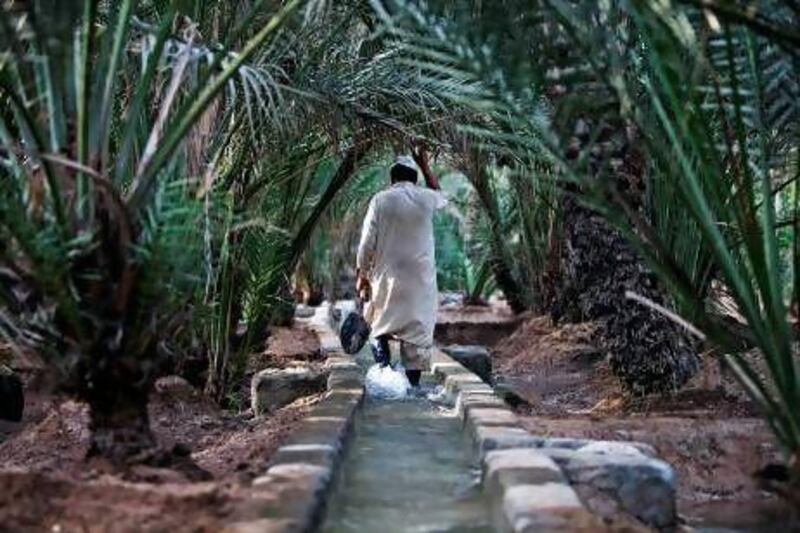DOHA // The secretary general of the GCC yesterday called on Gulf states to work together to tackle water scarcity.
He said water use has reached an "unacceptable" level, and that nations need a contingency plan to reduce the amount used per person.
"A GCC-comprehensive strategy linking all states in the region will be [vital]," said the secretary general, Dr Abdulatif bin Rashid Al Zayani, at the opening of the 10th Gulf Water Conference in Doha.
"Joint work has a much higher impact. With the consumption of water at more than 350 litres a person a day in the Gulf, the shortage of water is the main point of concern for GCC states."
Not only does the region face an increasing demand for water, but current use is already far beyond a sustainable capacity, according to Ali Redha Hussain, the chairman of the water science and technology association in Bahrain.
"The challenge of water is the most important and dangerous challenge facing the Gulf," he said.
The region must move from awareness to action - and fast.
"In the next five years, the region will witness an economic development that will require a development in consumption and an increase in population," said Dr Al Zayani.
This growth can only be detrimental to the Gulf in terms of water use, with the population expected to reach 50 million in the coming years.
"The demand for water in the GCC increased from six billion cubic metres in 1990 to 27 billion cubic metres in 2000," said Abdullah bin Abdulrahman Al Hussayen, the Saudi minister of water and electricity. "Demand will reach 43 billion cubic metres [in the future]."
Gulf states consume more than other countries, when they should be the most careful.
The UAE is one of the biggest consumers in the world, needing 26 times as much as it has available, according to the Food and Agriculture Organisation.
Compared with advanced countries in the east and the west where water is abundant, the GCC's consumption per capita has reached an "unacceptable" amount, especially with its dwindling supplies.
"Munich, for instance, managed to reduce its water use to less than 90 litres a person a day," said Mr Al Hussayen. "[It] is considered one of the wealthiest countries in water, so it is pretty ironic."
He added that the biggest culprit was the washing machine. More broadly, habit and low cost are the main problems in the Gulf.
"Costs are so low, it doesn't put any burden on the people and there's a sense of carelessness," said Mr Al Hussayen.
Of 1,000 houses in one of the GCC capitals, 70 per cent of water use was due to leakages.
"A GCC house consumes double the water of a European one," said Mr Al Hussayen.
He added that, as long as water fees remain low, the GCC would be in a race to meet the growing demand.
"We will lose it in the long run because it will be too late," he said.
Water experts and officials from the region will aim to find potential solutions.
"We need to invest in desalination technologies, manage groundwater and [draft] a contingency plan for GCC countries in case of a biological contamination of the seawater," said Dr Al Zayani. "We should also encourage institutions and the private sector to rationalise the use of water."
The officials and experts at the conference have each submitted a recommendation for better use of water in the GCC.
They will be announced tomorrow and sent to Dr Al Zayani, who will approve the best ideas in two weeks.
cmalek@thenational.ae
Water plan needed to tackle scarcity, says GCC chief
The GCC secretary general asks Gulf states to team up to tackle the 'dangerous challenge' of overuse, dwindling supplies and increasing demand.

Editor's picks
More from the national





